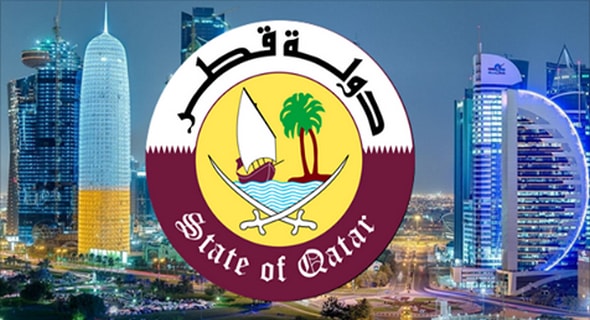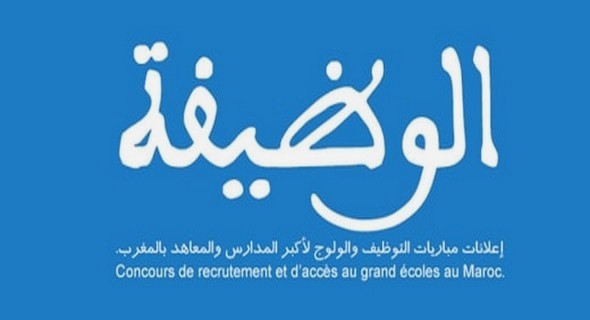Information Systems Development Officer (Judicial Information Systems)
Closing date: 07 Aug 2012
Special Tribunal for Lebanon
Depending on professional background, experience and family situation, a competitive compensation and benefits package will be offered. The successful applicant will be offered a temporary appointment until 31st December 2012. Any subsequent extension(s) is/are subject to terms of the Tribunal’s mandate and/or the availability of funds. The STL is an international inter-governmental organisation with its own independent legal identity and not a UN organization. However, the STL follows the UN common system for benefits and entitlements to its staff members. UN staff members may also serve on loan from their parent department/office, if selected.
RESPONSIBILITIES:
Within delegated authority, the Information Systems Development Officer (Judicial Information Systems) is responsible for provisioning and maintaining information system services for Judicial Information Systems at the Special Tribunal for Lebanon (STL). The incumbent works within the Courtroom Technology Unit and reports to the Chief of ITSS (Information Technology Services Section). The incumbent will analyze, plan, design and implement enhancements to the Legal Workflow System services in accordance with STL requirements. Draft plans and specifications for the request of equipment and services for Judicial Information Systems. The incumbent directs and supervises the work of contractors assigned to the unit, in terms of Judicial Information Systems installation, support and maintenance and business continuity. Coordinate with other specialists within the section and collaborate with external partners to ensure proper operation of the STL Judicial Information Systems infrastructure and operation. Perform other duties as required.
Legal Workflow is a highly secure portal environment in which all processes involved in information gathering, creation, registration and exchange take place. In Legal Workflow there are many different types of documents, ranging from evidence and to translations of court documents, to oral decisions, to witness statements, to transcriptions, to audio and video material.
The Information Systems Development Officer may be responsible for the following duties:
• Creates and reviews use cases and translates them into efficient EMC Documentum taskspace (xCP) applications and workflows.
• Manages projects involving feasibility studies, systems analysis, design, development and implementation of new components of the system.
• Develops detailed system and other functional specifications and user documentation for major systems.
• Provides specialized advice to users, analyzing users’ requirements and translating these into new EMC Documentum taskspace (xCP) applications and workflows; determines application systems integration and linkage issues.
• Maintains upgrades or enhances existing user systems.
• Develops and maintains computer programs that require integration of many interrelated systems and program elements; ensures appropriate data security and access controls using Documentum web services API, Documentum UCF, Documentum Java WDK.
• Organizes and performs unit and integrated testing, designing and utilizing test bases; assists users in acceptance testing.
• Researches, analyzes and evaluates new technologies and makes recommendations for their deployment.
• Participates in writing reports and papers on systems-related topics, system requirements, information strategy, etc.
• Provides guidance to, and may supervise, new/junior staff, consultants, etc.
COMPETENCIES:
• Professionalism – Comprehensive technical knowledge and problem-solving skills in the area of database and enterprise content management development, systems integration and maintenance. Ability to perform with minimal supervision, and work under pressure of frequent and tight deadlines. Knowledge of information technology/information management, particularly in systems analysis, database design (Microsoft SQL server) and programming (J2EE and Documentum Java SDK). Proficiency in all aspects of programming and analysis, including structured/object-oriented design, relational systems, document design and management. Strong analytical and problem-solving skills, to include proficiency in the development and implementation of complex systems. Good knowledge of organization’s information infrastructure and IT strategy as it relates to user area(s); independently maintains assigned systems and develops innovative approaches to resolve a wide range of issues/problems. Shows pride in work and in achievements; demonstrates professional competence and mastery of subject matter; is conscientious and efficient in meeting commitments, observing deadlines and achieving results; is motivated by professional rather than personal concerns; shows persistence when faced with difficult problems or challenges; remains calm in stressful situations. Takes responsibility for incorporating gender perspectives and ensuring the equal participation of women and men in all areas of work.
• Technological Awareness – Good written and oral communications skills, including the ability to convey technical concepts and recommendations to non-technical staff at all levels, both orally and in writing, in a clear and concise.
• Communication – Speaks and writes clearly and effectively; listens to others, correctly interprets messages from others and responds appropriately; asks questions to clarify, and exhibits interest in having two-way communication; tailors language, tone, style and format to match audience; demonstrates openness in sharing information and keeping people informed.
• Teamwork – Works collaboratively with colleagues to achieve organizational goals; solicits input by genuinely valuing others’ ideas and expertise; is willing to learn from others; places team agenda before personal agenda; supports and acts in accordance with final group decision, even when such decisions may not entirely reflect own position; shares credit for team accomplishments and accepts joint responsibility for team shortcomings.
• Planning & Organizing – Develops clear goals that are consistent with agreed strategies; identifies priority activities and assignments; adjusts priorities as required; allocates appropriate amount of time and resources for completing work; foresees risks and allows for contingencies when planning; monitors and adjusts plans and actions as necessary; uses time efficiently.
• Accountability – Takes ownership of all responsibilities and honours commitments; delivers outputs for which one has responsibility within prescribed time, cost and quality standards; operates in compliance with organizational regulations and rules; supports subordinates, provides oversight and takes responsibility for delegated assignments; takes personal responsibility for his/her own shortcomings and those of the work unit, where applicable.
• Creativity – Actively seeks to improve programmes or services; offers new and different options to solve problems or meet client needs; promotes and persuades others to consider new ideas; takes calculated risks on new and unusual ideas; thinks “outside the box”; takes an interest in new ideas and new ways of doing things; is not bound by current thinking or traditional approaches.
• Client Orientation – Considers all those to whom services are provided to be “clients” and seeks to see things from clients’ point of view; establishes and maintains productive partnerships with clients by gaining their trust and respect; identifies clients’ needs and matches them to appropriate solutions; monitors ongoing developments inside and outside the clients’ environment to keep informed and anticipate problems; keeps clients informed of progress or setbacks in projects; meets timeline for delivery of products or services to client.
• Commitment to Continuous Learning – Keeps abreast of new developments in own occupation/profession; actively seeks to develop oneself professionally and personally; contributes to the learning of colleagues and subordinates; shows willingness to learn from others; seeks feedback to learn and improve.
QUALIFICATIONS:
• Education: University degree (Bachelor or equivalent) in Computer Science or Information Systems. Industry qualifications in enterprise content management systems are desirable (e.g. E20-495 xCelerated Composition Platform (xCP) Application Development Certification).
• Work Experience: At least 7 years of progressively responsible experience in an enterprise content management environment, preferably with at least a number of years in development experience at the international level. Comprehensive knowledge of and the use of entity relationship, use case and data flow diagrams. Experience with established content management products including Documentum and Task space (xCP) and the customisation of these products within a judicial environment is desirable. Experience with design, development and maintenance of J2EE applications based on Documentum Java WDK.
• Languages: Arabic, English and French are the official languages of the Special Tribunal for Lebanon. For this post fluency in oral and written English is required. Knowledge of the other official languages is an asset.
How to apply:
Go to https://apps.stl-tsl.org/phfonline
Register, if you have not done so. Note down your log-on id (email address) and password.
You'll get an activation email; activate your account following instructions in the email.
Log-in using your log-on id and password.
Completely fill out your Personal History Profile.
Click on the link for General Service Vacancies, Professional Vacancies or Field Service Vacancies.
Select the vacancy which you would like to apply for. 6. Click on the "Apply" button.
Fill out your cover letter.
Click on the check box which says "I Certify that the statements made by me in answer to the foregoing questions are true, complete and correct to the best of my knowledge and belief. I understand that any misrepresentation or material omission made on a Personal History Profile or other document requested by the Organisation renders me liable to termination or dismissal". Once you do that the "APPLY" button becomes visible.
Click on the "Apply" button to complete your application.
Once you have applied for a vacancy, an automatic email will be sent to you confirming your application.
For the full instructions, please go to https://apps.stl-tsl.org/PHFOnline/Help/HowToApply.aspx.
It is not necessary at this stage to send copies of qualifications, previous employment contracts, entire publications, etc.
Only applicants who are under serious consideration will be contacted. The Tribunal is not in a position to respond to queries regarding information on the status of vacancies or unsolicited open applications.

